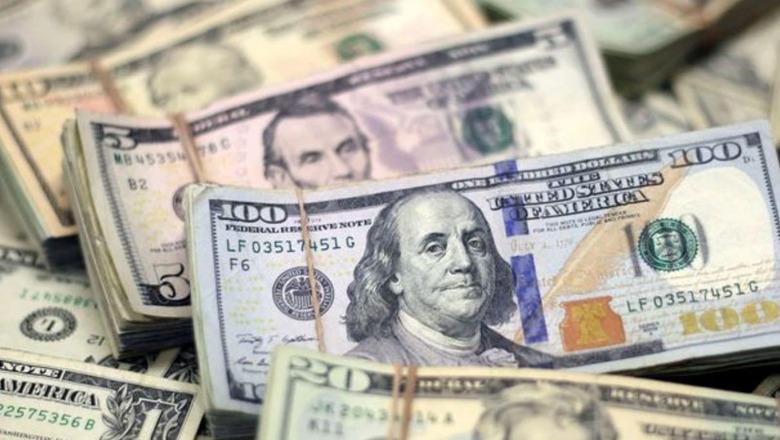
views
Global foreign currency reserves have declined about 7.8 per cent, or by $1 trillion, this year to $12 trillion, according to a Bloomberg report. It is the biggest drop since at least 2003. The drop comes against the backdrop of central banks across the world, including India, intervening to support currencies.
The fall in forex reserves of various countries is also attributed to the strengthening of the dollar which has reduced the value of various currencies vis-a-vis dollar. In September, Japan spent about $20 billion, which is about 19 per cent of the loss of reserves this year, to slow the yen’s slide in its first intervention to support the currency since 1998, according to the report.
India’s forex reserves also continue to decline. During the week ended September 23, the country’s overall reserves fell $8.134 billion to $537.518 billion. The reserves, which have been dipping as the central bank deploys the kitty to defend the rupee amid global volatility, had declined by over $5.2 billion to $545.54 billion in the previous reporting week.
The fall in the reserves for the week ended September 23 was on account of a dip in the foreign currency assets (FCA), a major component of the overall reserves, according to the weekly statistical supplement released by the RBI. The FCA decreased by $7.688 billion to $477.212 billion during the reporting week.
Expressed in dollar terms, the foreign currency assets include the effect of appreciation or depreciation of non-US units like the euro, pound and yen held in the foreign exchange reserves. The value of the gold reserves decreased by $300 million to $37.886 billion, the data showed.
The special drawing rights (SDRs) dropped by $93 million to $17.594 billion. The country’s reserve position with the IMF was down by $54 million to $4.826 billion in the reporting week, as per the data.
In July, the Reserve Bank of India unveiled measures including easing rules for FPIs, interest rates cap removed for FCNR and NRE term deposits and raising limits on external borrowings, to stabilise the rupee and attract foreign investments.
On Thursday, the rupee depreciated 4 paise to 81.66 against the US dollar in early trade on Thursday amid high volatility as rising crude oil prices weighed on the local unit. In the current calendar year, the rupee has declined about nine per cent after plunging to all-time lows multiple times. The domestic currency had stood at 73.77 to a dollar on January 12, 2022.
The rupee has been witnessing a decline mainly due to the strengthening of the American currency, risk-averse sentiment among investors and escalation of geopolitical risks due to conflict in Ukraine.
The total outflow by Foreign Portfolio Investors (FPIs) from the Indian equity markets has reached Rs 1.68 lakh crore so far in 2022. Foreign investors turned net buyers for the last two months. However, in September again, FPIs became net sellers and pulled out over Rs 7,600 crore from the Indian equity markets amid hawkish stance by the US Fed and sharp depreciation in rupee.
Read all the Latest Business News and Breaking News here


















Comments
0 comment